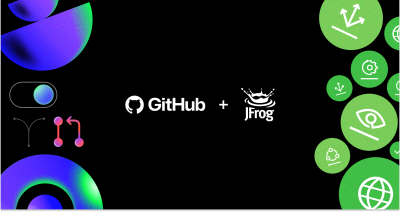Updates to our Terms of Service and Privacy Statement now merged
As part of GitHub’s commitment to developers, we open source the policies that govern our platform and welcome feedback at any time in our site-policy repository. When we make material…

As part of GitHub’s commitment to developers, we open source the policies that govern our platform and welcome feedback at any time in our site-policy repository. When we make material changes to these policies, we open a notice and comment period. We’ve just closed such a comment period, and the changes announced in October are now in effect.
It’s been very exciting to receive constructive input from so many developers during the recent comment period. Whether you offered recommendations for changes, asked clarifying questions, or simply expressed gratitude, thank you for your contributions! As a way to say thanks, and in the spirit of transparency, we detail a few of your suggestions below. Feel free to check out all the comments we received on our now-merged pull requests.
Your feedback guides changes
We received suggestions for changes to better help users follow future changes in our terms and present new policy documents. Based on these suggestions, we made further commits to more transparently show the content and name changes in one document, and edited our privacy statement to encourage readers to watch the repository to receive updates for future proposed changes.
We also received questions seeking clarification around some changes, including the use and extent of automated scanning for content uploaded to GitHub, what types of tracking technologies we use, and the implications of our terms for satirical art. We have sought to answer these questions directly. Where the questions surfaced ambiguity in our policies, we made clarifying edits to our privacy statement and community guidelines.
Additionally, we received some comments that were thank you’s for our changes that reflected wins for developers. These included prohibitions to use information from GitHub to spam our users, and improvements to ditch the legalese and simplify language for the vast majority of us reading without a legal background.
Why we open source our policies
Feedback from our users is precisely why we choose to transparently update our site policies and invite comments. As we’ve seen, this open source approach to policy development makes for better policies. It also makes for better engagement with our users, offering an opportunity to help users understand changes before they go into effect.
All of the documents in our site-policy repository are under a CC0 license. We do this to make it easy for users to collaborate, engage with, and fork (reuse and adapt) our site policies. In this way, we hope to offer our policies as a resource to the developer community, much like we have done with GitHub’s own balanced employee IP agreement. Our efforts to open source non-technical repositories also serve to familiarize policymakers and the public with open source, open source projects, and the power of the open source process more broadly.
How you can get involved
Periodically, we will open pull requests to seek your input ahead of making changes. We encourage you to watch the repository so you can offer input when we post updates. In most cases, we’ll open a pull request 24 hours before changes go into effect. For material changes to our Privacy Statement, Terms of Service, Acceptable Use Policies, Corporate Terms of Service, and Enterprise Subscription Agreement, we’ll post the updates 30 days before they go into effect to give you a chance to comment.
Thank you for your input to our latest changes, and for your continued engagement in future updates. In the meantime, we always welcome input to improve our policies in the site-policy repository. If you’ve found our open-sourced policies useful in other ways, we’d love to hear from you as well!
Tags:
Written by
Related posts

GitHub and JFrog partner to unify code and binaries for DevSecOps
This partnership between GitHub and JFrog enables developers to manage code and binaries more efficiently on two of the most widely used developer platforms in the world.

2024 GitHub Accelerator: Meet the 11 projects shaping open source AI
Announcing the second cohort, delivering value to projects, and driving a new frontier.

Introducing GitHub Copilot Extensions: Unlocking unlimited possibilities with our ecosystem of partners
The world of Copilot is getting bigger, improving the developer experience by keeping developers in the flow longer and allowing them to do more in natural language.